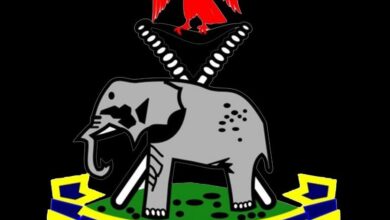842 Nigerians Killed, 922 Injured in Truck Accidents in Two Years

Human societies, much like individuals, live and breathe on hope. Where hope is lost, despair creeps in; and where despair holds sway, death is but a matter of time. Great institutions, no matter how battered, survive because somewhere in their bowels resides the stubborn spark of hope that things can be better tomorrow. The philosopher Gabriel Marcel once remarked that hope is not the conviction that things will turn out well but the certainty that life has meaning, no matter the outcome. For battered communities, for nations in distress, and indeed for universities trapped in decline, hope is the very oxygen of survival.
The University of Nigeria, Nsukka (UNN), once the pride of Africa’s ivory towers, has in recent decades become a tragic case study in institutional decay. Once hailed as the “Lion’s Den”—a metaphor of pride, strength, and dignity—it has, in the painful imagery of the Pro-Chancellor and Council Chairman, Engr. Kayode Ojo, “fallen from golden heights of Lion’s Den to an abandoned poultry.” The descent was neither sudden nor accidental. It was the slow corrosion of systems, the neglect of leadership, the compromise of values, and the encroaching wear and tear of time.
But every story of decline carries within it the possibility of renaissance. And so, when Prof. Simon Ortuanya assumed office as the 16th Vice Chancellor of UNN on August 12, 2025, there was a collective holding of breath: would this be another chapter in the tale of drift, or the long-awaited pivot to redemption? Here come the speech that sparked hope. At his maiden Senate meeting on August 27, 2025, Prof. Ortuanya gave an inaugural address that has already entered the annals of the university’s lore. Those present spoke of its cadence and rhythm, of its Shakespearean suavity, of the Brutus-like eloquence that carried senators along like a rising tide. More importantly, beyond the oratorical beauty, there was substance, an outline of a roadmap that promised purpose-driven governance, reinvention, and rebirth.
Each point he raised was greeted with thunderous applause. It was not simply politeness. It was relief, like parched travelers hearing the distant murmur of water. At that moment, senators and staff saw a glimpse of possibility, a chance that UNN’s awful narrative might yet be rewritten. This recall the Igbo parable of Mbe and Aniga.
In Igbo folklore, there is the enduring tale of mbe the tortoise, also known as Ikemefula, and his wife Aniga. One evening, after a bout of conjugal gymnastics some days earlier, Aniga was seen spitting profusely. Mbe, reclining in satisfaction, thumbed his chest and smiled. To him, this spitting was evidence that his efforts were not in vain—whether or not it was truly a sign of pregnancy was beside the point. His nickname, Ikemefula, meaning “may my efforts not be in vain,” seemed justified.
This story offers a useful metaphor for institutions in transition. At UNN’s Senate chambers that day, Ortuanya’s speech was Aniga’s spitting. It was not yet a baby, not yet transformation, but it was enough to assure the community that something had been stirred. Whether the spitting foretells pregnancy or not, the satisfaction lay in knowing that effort was visible, intention was genuine, and momentum was in motion. The hope, of course, is that the metaphorical spitting will grow into a full-term pregnancy and, at the end of five years, deliver quintuplets of transformation: uplift in teaching and learning, infrastructural renaissance, moral rearmament, attitudinal reset, and holistic reinvention of the University of Nigeria.
Then enters the transition from words to actions. What makes this story compelling is that barely one month after his assumption of office, Prof. Ortuanya’s promises have begun to bear visible signs. The campus today is buzzing with the hum of construction. Contractors have returned to abandoned projects. The Innoson Tractor Assembly Plant at the Faculty of Engineering, once paused, is set to come alive once again. The high-rise Senate building initiated by Prof. Charles Igwe has breathed back to life. The derelict Works Department fuel station is being revived. Roads across the campus are under reconstruction. Even Senate meetings, long dreaded for their dreary monotony, now conclude with something symbolic: a buffet that, while gastronomical, is also emblematic of abundance and renewal.
The University, once likened to an abandoned poultry, now resembles a construction yard. For staff and students long accustomed to broken promises, this is no small shift. It is the difference between rhetoric and reality, between wishful dreaming and tangible delivery.
What then, is the significance of “Simon is Working”? In Anambra politics, the mantra “Willie is Working” became a slogan of continuity and delivery. For the people of Anambra, it carried both praise and parody, depending on one’s politics. Now, in the context of UNN, “Simon is Working” emerges both as a hopeful refrain and as a parody-turned-truth. What began as mimicry of political sloganeering has acquired deeper meaning: an academic leader rolling up his sleeves to restore dignity to the first indigenous university in Nigeria.
But slogans are double-edged swords. They can inspire, but they can also haunt. If Simon falters, the same mantra will be turned against him with biting satire. This is why the current momentum must be sustained, not as a sprint but as a marathon. Universities do not transform in one month or one year. They require patience, persistence, and the discipline to stay the course.
Any lessons from history? The story of UNN is itself a story of resilience. Founded in 1960 by Nnamdi Azikiwe, the university was conceived as a citadel of African pride—an institution that would match Oxford and Harvard in vision and rigor. Its motto, To Restore the Dignity of Man, captured both an aspiration and a mission. But history has not been kind. Civil war, military neglect, underfunding, systemic issues, and brain drain combined to sap its vitality.
Yet, despite these odds, UNN has continued to produce giants in every field—writers, scientists, administrators, and public servants of global repute. Its alumni embody the stubbornness of hope. The renaissance now promised by Prof. Ortuanya is thus not a fresh miracle but the rekindling of an old fire, the revival of a founding vision long deferred.
How about the fivefold pregnancy, heralded by Aniga’s spitting? If the latter is to lead to quintuplets, then the roadmap must be clear. First, teaching and learning must be revitalized—not just in infrastructure but in pedagogy, curriculum, and academic integrity. Second, infrastructure must undergo a genuine renaissance: lecture halls, hostels, laboratories, and libraries that reflect 21st-century realities. Third, there must be moral rearmament—an uncompromising stand against corruption, sexual harassment, and examination malpractice. Fourth, the work ethic of staff must be reset, replacing lethargy with passion and accountability. Finally, the university must embrace holistic reinvention—rebranding itself as a center of excellence, innovation, and global competitiveness. These are ambitious goals. But without ambition, there can be no renaissance.
In the end, the true test of leadership lies not in speeches but in sustained delivery by intentionally walking the talk. As the Igbo proverb warns, ukwu na-ama akwa adịghị mma ịgba ọtọ (It is an anomaly for the waist accustomed to loin-cloth to go naked). The university community has applauded Simon’s opening moves; but applause is only the beginning. What matters is that the Vice Chancellor walks the talk, stays grounded, resists distractions, and remembers always that he is steward of a vision bigger than himself.
The Renaissance of UNN will not only benefit Nsukka or Enugu State. It will ripple across Nigeria, inspiring other institutions, restoring faith in public universities, and reminding Africa that its first indigenous university still carries the torch of excellence.
And so, one month into his tenure, it is fair to say: ‘Simon is working’. The spitting has begun. The signs of pregnancy are visible. The construction yards bear witness. But hope, like pregnancy, must run its full course. We must pray, watch, and support that at the end of five years, the quintuplets of transformation will indeed be born.
For now, the University of Nigeria is on the march again, intentionally headed in the direction of rectitude, reinvention, and renaissance. May the new Vice Chancellor remain steadfast. May the staff and students rise to the challenge. And may the Lion’s Den roar again, not as an abandoned poultry, but as the majestic home of learning it was meant to be. Indeed, Simon is working. God willing, Simon will deliver.
Post Views: 127




